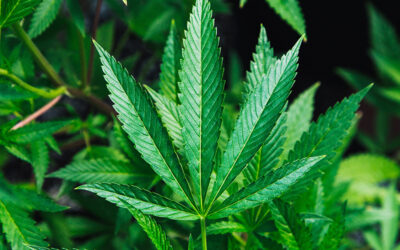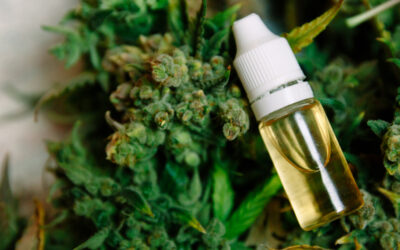CBD energized the dialogue around cannabis and got people interested in learning the real facts about a very misunderstood plant.
It can be challenging to have a meaningful conversation about a plant that has been demonized for multiple generations. When we established the legal hemp cannabidiol (CBD) market, we could not have foreseen the ways in which CBD changed the cannabis movement for the better, making it more inclusive and have such broad bipartisan appeal.
Traditionally conservative states like Alabama, South Carolina and Utah have come to see the therapeutic value of cannabis through “CBD only” legislation. While far from ideal, this legislation is a non-threatening first step towards greater acceptance of cannabis. States like Tennessee, Kentucky, and Missouri are going one step further and are permitting industrial hemp agriculture. These are huge milestones that happened in just the last few years of a long struggle.
Here’s how Medical Marijuana Inc. continues to pioneer in the industry by reintroducing cannabis to the mainstream as an incredibly beneficial herb.
Our focus is on providing a healthy ingredient, not an intoxicant. Even as an “adult use” substance, cannabis hardly poses any danger to human health. While research in 2015 has shown that cannabis is over 100 times safer to consume than alcohol, we believe that the potential therapeutic and nutritional value of cannabis will far surpass its recreational value. To that end…
We are seeking sensible ways to talk about including cannabinoids in one’s diet. That every mammal has an endocannabinoid system has been common knowledge among researchers and drug developers for over two decades. Given the broad spectrum of critical bodily processes that the endocannabinoid system is involved with, we clearly see a future in which natural cannabinoid supplementation is standard practice.
Pharmaceutical drug development is, naturally, one area of business interest, as it allows us to fund deeper scientific inquiry into the mechanisms and applications of cannabinoids. However, thousands of our customers are telling us what humans have known for millennia: that foods are often the best medicines.
This is why our joint business ventures and investments – while diversified to include many hemp consumer products, industry-related services, and drug development partnerships – are principally directed towards cannabinoid foods, lifestyle products, and dietary supplements. While testing products at “cannabis labs” is common in the industry today, our investment in rigorous testing at ISO/IEC 17025:2005 accredited food safety laboratories is just one way in which we are looking towards the future of consumer-friendly cannabinoid products.
Hemp for cannabinoids is a natural and obvious choice for farmers, too. As to why we have pursued hemp for cannabinoids, the reasons are many. Therapeutic cannabinoids could change the way people think about hemp agriculture – not just marijuana. As industrial hemp cultivation continues nationwide, and as cannabis prohibition is repealed, American farmers will suddenly have the opportunity to grow an extremely lucrative, multi-purpose plant and compete with dozens of other countries. Despite international prohibitions Canada, our neighbor to the north, has a booming hemp agricultural market of over $30M and growing.
Given that the recreational and medical cannabis market is poised to exceed $35B within five years, producing industrial hemp for cannabinoids – on top of fiber, seed, food, bioplastics and oil – creates an entirely new, potentially massive commodity market (and a competitive international advantage) for American hemp farmers.
Offering natural, standardized consumer products for all Americans. Many people don’t realize that we spent the first few years of our existence researching and developing the supply chain for hemp oil that contained significant CBD. They don’t realize that our pioneering work resulted in a CBD hemp oil that passes all U.S. federal requirements for open importation, making it available to companies and consumers that want to know they are getting products they can trust.
In summary: We hope that through our groundbreaking work and our continued commitment to advancing cannabis into the mainstream, legislators and the public alike will continue to open their eyes to the potential of this plant outside of the black market or a dispensary. Given the continued bi-partisan pushes to end cannabis prohibition, we feel we are on the precipice of a massive consumer and agricultural revolution that will far surpass the medical/recreational cannabis market as it is today.






